2022 Summer School on Operations Research and Algorithms
The summer school aims at introducing mathematical modelling in operations research and algorithms, as well as various practical applications from combinatorial optimization, machine learning, game theory, dynamic programming and so on. It would also like to provide a discussion forum for international participants, especially graduate students and young scholars.
Like last year, we invite six speakers to give research talks to share the latest development and their recent research results. The lectures also include preliminary theoretical materials and possible real-world applications. The talks will be scheduled on September 1st to 2nd (Thursday to Friday), and given in a hybrid way: on-site at National Tsing Hua University in Hsinchu, Taiwan, and online via Microsoft Teams. Every local participant is particularly welcome to attend the on-site venue. We hope you will enjoy the two-day event.
Date and Venue
Date: 1st (Thu) to 2nd (Fri) September, 2022
Place: It will be held in a Hybrid way.
Online: Microsoft Teams
On-site venue: Room 106, Engineering Building 1, National Tsing Hua University, Hsinchu
Language: English
Audience: Students and scholars who are interested in the topic are welcome
Cost of participation: Free
Registration
In order to maintain the high quality of the forum, please fill out the form below. Once your registration is confirmed, you will receive a link for entering the online forum if you plan to attend online. For any questions, please email the organizer.
Organizer:
Dept. Industrial Engineering and Engineering Management, National Tsing Hua University
Logistics and Supply Chain Research Center, National Yang Ming Chiao Tung University
Speakers
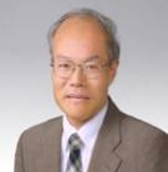
Prof. Kazuo Iwama
National Tsing Hua University
Professor Kazuo Iwama is an honorary chair professor with RIMS (Research Institute for Mathematical Sciences), Kyoto University. He had been Full Professor with Dept. Computer Science, Kyoto University for more than 20 years. He is currently the Editor-in-Chief of Bulletin, European Association for Theoretical Computer Science (EATCS), the flagship journal of EATCS. He is Fellow of Academia Europae (since 2012) and Fellow of Science Council of Japan (since 2005). Professor Iwama’s research mainly focuses on computational complexity and online approximation algorithms. He has published more than 220 scientific papers (including more than 100 journal papers). He led some important projects, each of which was awarded more than 30 million dollars (JPY) by the Japan government. Moreover, he served as the organizing committee chair of the two topmost conferences: SODA and ICALP in the field of algorithms and computation, both of which were first time held in Asia. He is also the founder of Asian Association for Algorithms and Computation (AAAC). In particular, he supervised more than 20 doctoral students who currently serve as faculty members in top universities in Japan.

Prof. Yu-Ching Lee
National Tsing Hua University
Professor Yu-Ching Lee is an Assistant Professor in the Department of Industrial Engineering and Engineering Management (IEEM) at National Tsing Hua University (NTHU). Before joining NTHU, she was a Postdoctoral Research Associate in the Department of Industrial and Enterprise Systems Engineering (ISE) at University of Illinois at Urbana-Champaign (UIUC) and in the meantime a lecturer of the regular IE courses and the Master of Science of Financial Engineering courses. She obtained a Ph.D. degree in Industrial Engineering from ISE at UIUC in December 2012, a M.S. degree with a thesis from the Department of Civil and Environmental Engineering (CEE) at UIUC in 2008, and a B.S. degree from the Department of Civil Engineering at National Taiwan University (NTU) in 2006. She is interested in optimization theory, modeling, and algorithm development. She has published in TS, OR, EJOR, JOGO, and GOPT.
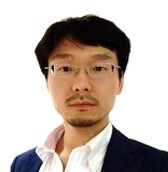
Prof. Feng-Jang Hwang
National Sun Yat-sen University
F.J. Hwang is an associate professor in the Department of Business Management, National Sun Yat-sen University, Taiwan. His research interests centre around data-driven optimisation, production scheduling, intelligent transportation and logistics, and business analytics. He has published in the relevant journals, including Annals of Operations Research, Journal of the Operational Research Society, Computational Optimization and Applications, Computers and Operations Research, Journal of Scheduling, ACM Transactions on Sensor Networks, International Journal of Sustainable Transportation, Applied Soft Computing, etc. He has been serving as the Guest Editor for Q1/Q2 SCI journals as well as the General/Session Chair for international conferences/workshops.
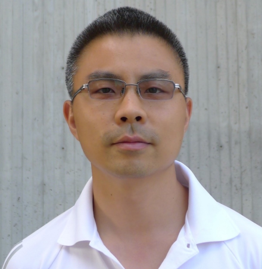
Prof. Chung-Shou Liao
National Tsing Hua University
Chung-Shou Liao joined the faculty of Dept. of Industrial Engineering and Engineering Management, National Tsing Hua University in Feb. 2010, and has been a full professor since Aug. 2018. His research mainly focuses on designing efficient algorithms that can be used to solve difficult combinatorial optimization problems from real applications. His lab has developed approximation algorithms with theoretical analysis for well-known hard problems such as online shortest path, facility location, domination, and scheduling and packing problems. Dr. Liao has also extended his study to systems biology, and recently moved his focus on the area of online and dynamic algorithms. Dr. Liao was a Fulbright Senior Research Scholar in 2018-2019, and served as Program Committee Chair of AAAC 2016 (the 9th Annual Meeting of Asian Association for Algorithms and Computation) and ISAAC 2018 (the 29th International Symposium on Algorithms and Computation). He is Board Member of AAAC, Steering Committee Member of ISAAC, and Associate Editor of Journal of Combinatorial Optimization. In recent years, his team has collaborated with many high-tech companies such as MediaTek, UMC, TSMC, etc. and received MOST AI research grants. Dr. Liao is Senior Member of ACM and IEEE.
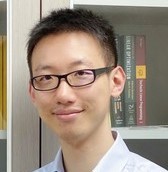
Prof. Hao-Hsiang Wu
National Yang Ming Chiao Tung University
Hao-Hsiang Wu is an assistant professor in the Department of Management Science at National Yang Ming Chiao Tung University. He received his Ph.D. in Industrial and Systems Engineering from the University of Washington. His research focuses on mixed-integer programming and optimization under uncertainty. His research results have been applied to some domains, including social networks and logistics.
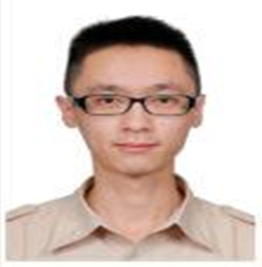
Prof. Hung-Ping Tung
National Yang Ming Chiao Tung University
Hung-Ping Tung is currently an assistant professor in Department of Industry Engineering and management at National Yang Ming Chaio Tung university. He received his Ph.D. degree in statistics from National Tsing-Hua University. His research interests include reliability data analysis and industrial statistics.
Program
2022.09.01 (Thu.)
| Time |
Title |
Invited Speaker |
| 10:20~10:30 |
Welcome |
| 10:30~12:00 |
Stable Matching: Why Interesting, Important and Fun? |
Kazuo Iwama |
| 12:00~13:30 |
Lunch Break |
| 13:30~15:00 |
Game Theory Basics and the Research Topic About the Frequency Competition Among Airlines |
Yu-Ching Lee |
| 15:00~15:30 |
Coffee/Tea Break |
| 15:30~17:00 |
From Assignment problem to Restaurant-chain meal delivery problem |
Feng-Jang Hwang |
2022.09.02 (Fri.)
| Time |
Title |
Invited Speaker |
| 10:30~12:00 |
From online algorithms to learning-augmented online algorithms |
Chung-Shou Liao |
| 12:00~13:30 |
Lunch Break |
| 13:30~15:00 |
On a class of robust submodular optimization problems |
Hao-Hsiang Wu |
| 15:00~15:30 |
Coffee/Tea Break |
| 15:30~17:00 |
Optimal Designs for Accelerated Degradation Tests |
Hung-Ping Tung |
• Prof. Kazuo Iwama
Research title: Stable Matching: Why Interesting, Important and Fun?
Abstract: This talk looks at the stable matching problem from three different angles, namely why it is important (Nobel Prize winners produced), why it is interesting (e.g. compared to the conventional matching problems) and why it has a lot of fun (e.g., a conjecture by Knuth was wrong). The lecture includes its (long) history, basic notions and results and some extensions in the last 20 years.
• Prof. Yu-Ching Lee
Research title: Game Theory Basics and the Research Topic About the Frequency Competition Among Airlines
Abstract: Frequency competition is critical for a full-service airline in gaining market share, and adopting a proper strategy can improve an airline's profits. This study proposes a new equilibrium programming model with flow balance to address frequency competition on airports network with time slot constraints. We first show that a pure-strategy Nash equilibrium may not always exist, and thus forming a pure strategy profile in frequency competition among airlines may naturally lead to deviation from current frequency. Therefore, we formulate the problem as a programming model with a mixed-strategy Nash equilibrium. To avoid shocks from dramatic frequency changes across the network, airlines tend to fine-tune frequencies on select segments during each adjustment. We propose a procedure to generate a computationally tractable amount of representative strategies from a finite set of feasible strategies to demonstrate mixed-strategy Nash equilibrium. We conduct an empirical analysis using an example in which industry profitability increased by as much as 7.89%. We then extend the model to formulate frequency competition among metal-neutral alliances. The results show that forming metal-neutral alliances can improve total industry profits by 10.59%. In particular, a sensitivity analysis with real data on the tolerance of flow imbalance demonstrates that deducting the potential costs due to the relaxation of flow balance between congested airports may earn additional total industry profits in a frequency competition.
Research title: From Assignment problem to Restaurant-chain meal delivery problem
Abstract: In this talk, we will start with the tutorial part (75%) by discussing the theoretical aspects of the assignment problem as well as Hungarian method, which is a predecessor of a class of methods for the LPs called the primal-dual algorithms. The connections of the procedures of the Hungarian method to the duality theories and complementary slackness conditions will be discussed. Then we turn to the research part (25%) by introducing briefly a novel restaurant-chain-owned online food ordering and delivery (OFOD) system framework for the restaurant chain as an alternative to cooperating with the third-party OFOD platforms, which would resolve the growing conflicts between the OFOD platforms and relevant stakeholders, viz. restaurants, customers, and couriers. Considering the deterministic optimisation of meal delivery for the restaurant-chain-owned OFOD system, we present a new meal delivery model named restaurant-chain meal delivery problem (RCMDP), where multiple meal orders can be grouped into a meal bundle, and design a corresponding two-stage hierarchical mixed integer linear programming framework. The theoretical properties of the RCMDP and relevant solution approaches will be mentioned in this talk.
• Prof. Chung-Shou Liao
Research title: From online algorithms to learning-augmented online algorithms
Abstract: In the past three decades, online algorithms have gained a considerable amount of research interest. The concept of online algorithms has been applied to a variety of practical models with uncertainty such as incremental learning, while the only measure to evaluate the performance of an online algorithm is “competitive ratio”; that is, comparing an online algorithm to an offline optimal adversary. The fundamental question in the field of online algorithms is that: can we evaluate the quality of an online algorithm in a better way? A new concept, called learning-augmented algorithms, was proposed to answer the question in 2018. Precisely, the notion exploits the prediction power of machine learning models to obtain the robustness guarantees of competitive analysis for online algorithms. In this talk, we first introduce several classical problems as well as their online algorithms. Next, we discuss not only how to devise online algorithms with learning prediction in order to obtain a better theoretical guarantee, but also how to provide a way to look into different performance evaluation beyond the most common worst-case analysis.
• Prof. Hao-Hsiang Wu
Research title: On a class of robust submodular optimization problems
Abstract: This talk aims to introduce a research topic on a class of robust submodular optimization problems (RSOs). We start with a tutorial on the fundamentals of submodular optimization problems and the associated decomposition methods of the issues. Then, following the concept of the submodularity of the tutorial, we consider a fundamental robust problem that aims to fight against the worst-case function of a set of monotone submodular objective functions. We provide an analysis of the polyhedron of the robust problem. Based on the analysis, we introduce a method that solves the problem with an optimality guarantee. In computational studies, we apply the method to a sensor placement optimization problem under water distribution networks.
• Prof. Hung-Ping Tung
Research title: Optimal Designs for Accelerated Degradation Tests
Abstract: To assess the lifetime information of highly reliable products, accelerated degradation tests (ADTs) are widely used in the industry. Due to the high cost of conducting an ADT, planning an efficient ADT (so that we can obtain a precise lifetime prediction under limited budgets) becomes a crucial task. In this talk, I will first introduce the concept of accelerated degradation tests and optimal design theory. Next, I will derive the optimal design of exponential dispersion (ED) ADT, which is a generalized degradation model covering several well-known processes, for example Wiener, Poisson, gamma and inverse Gaussian process. I will start from the optimal design of the single accelerating variable ED ADT. Then, I will advance the result to the two accelerating variables ED ADT with an assumption that the model does not include the interaction. Finally, when the model includes the interaction, I will provide a conjecture design and verify that this conjecture design is exactly the optimal design by the general equivalence theorem.






